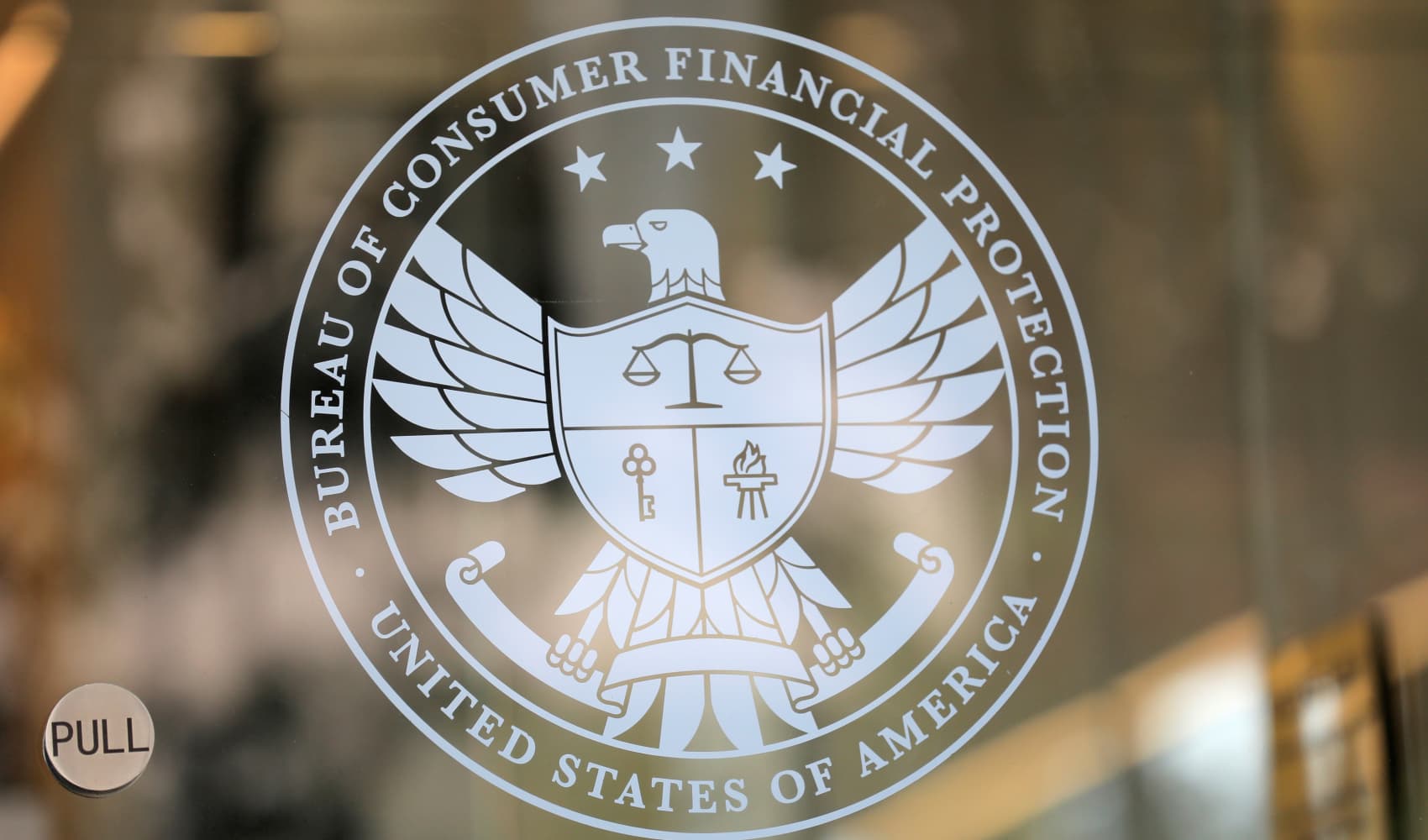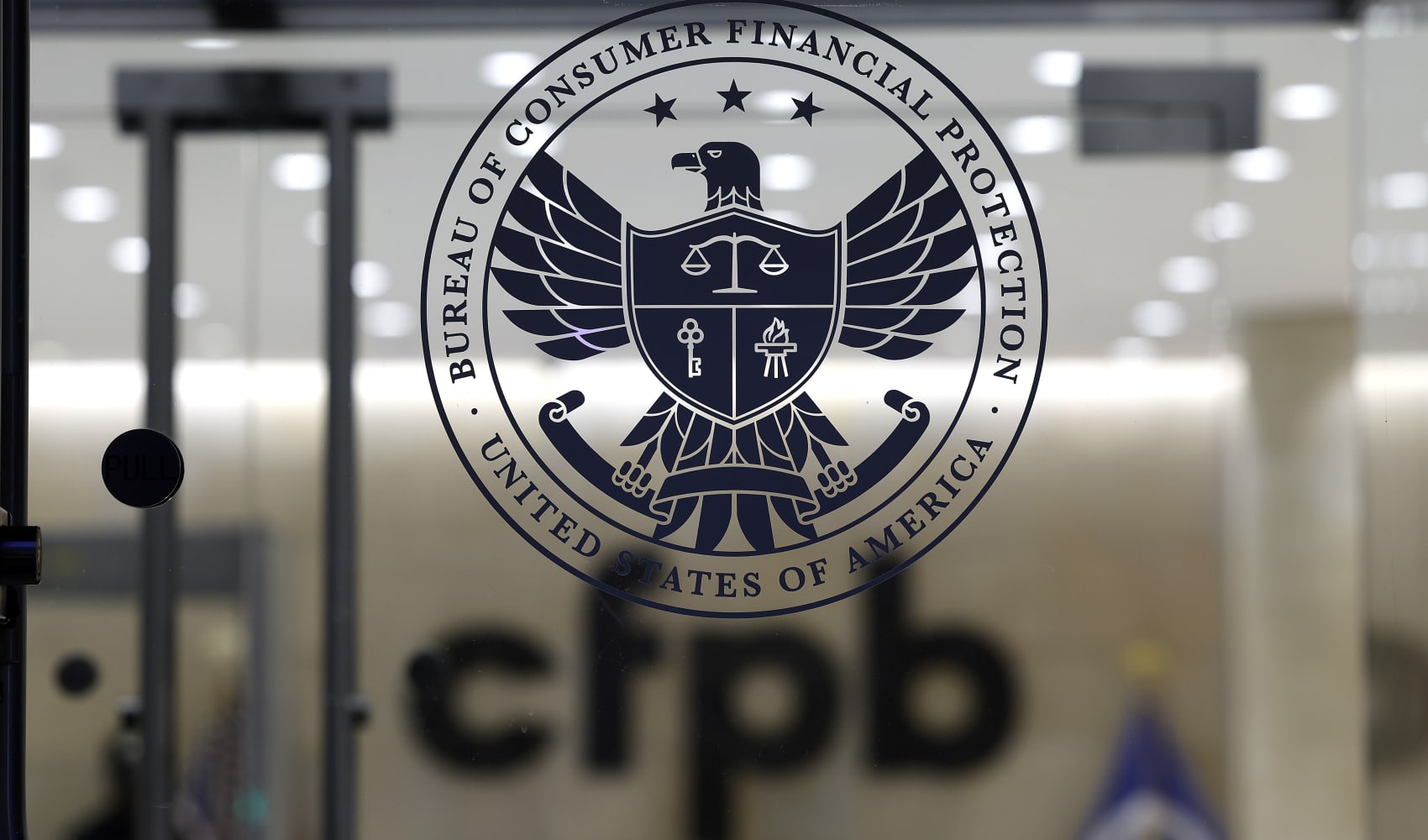CFPB Cuts: How Will They Impact Your Wallet?
Is Your Financial Safety Net Fraying? The Truth About CFPB Cuts
Introduction: What's Happening at the CFPB?
Imagine your house has a leaky roof. You depend on that roof to keep you safe and dry, right? Well, the Consumer Financial Protection Bureau (CFPB) is kind of like that roof for your financial life. It's there to protect you from predatory lenders, shady financial practices, and confusing fine print. But what happens when someone starts tearing holes in that roof? That's essentially what's been going on with the CFPB, and it could have some serious consequences for everyday consumers like you and me.
The Trump administration aimed for significant cuts to the CFPB, even trying to eliminate nearly 90% of its staff. While legal challenges prevented a complete shutdown, the attempted gutting of the agency has raised serious concerns about its future effectiveness. So, let's dive into what these dramatic cuts could mean for your wallet and your financial well-being.
The CFPB: Your Financial Guardian Angel
The CFPB was established in the wake of the 2008 financial crisis to protect consumers from financial wrongdoing. Think of it as a watchdog, sniffing out unfair, deceptive, and abusive practices in the financial marketplace. It covers a wide range of financial products and services, including:
- Mortgages
- Credit cards
- Student loans
- Auto loans
- Payday loans
- Debt collection
The agency's mission is to ensure that you have access to fair and transparent financial products and services. Without the CFPB, it's like playing a rigged game – the odds are stacked against you.
The Proposed Cuts: A Financial Hurricane?
The Trump administration’s attempt to dramatically reduce the CFPB's staff and resources sent shockwaves through the consumer protection community. Why? Because fewer staff means fewer investigations, fewer enforcement actions, and ultimately, less protection for consumers. Think of it like this: if the police force were cut by 90%, would you feel as safe?
What's at Stake?
With fewer resources, the CFPB might struggle to:
- Investigate and prosecute companies engaging in fraudulent or deceptive practices.
- Enforce consumer protection laws.
- Develop and implement new regulations to address emerging financial threats.
- Educate consumers about their rights and responsibilities.
Legal Challenges: A Temporary Reprieve?
Fortunately, legal challenges have prevented the Trump administration from completely dismantling the CFPB. However, the attempts to undermine the agency have already had a chilling effect. Uncertainty about the agency's future has made it more difficult for it to attract and retain top talent, and some companies may be emboldened to engage in riskier behavior.
The Impact on Mortgages: Will Lending Get Shadier?
Mortgages are often the biggest financial commitment most people make. The CFPB plays a crucial role in ensuring that mortgage lenders are playing fair. With a weakened CFPB, there's a risk of:
- Predatory lending practices creeping back into the market.
- Lenders offering loans with hidden fees and unfavorable terms.
- Discriminatory lending practices targeting vulnerable communities.
Credit Cards: Are Hidden Fees Making a Comeback?
Credit cards can be a convenient tool, but they can also be a source of debt and frustration. The CFPB has worked to crack down on abusive credit card practices, such as:
- Excessive late fees.
- Arbitrary interest rate hikes.
- Confusing terms and conditions.
If the CFPB's oversight is reduced, these practices could return, costing consumers billions of dollars.
Student Loans: Will Borrowers Be Left High and Dry?
Student loan debt is a growing crisis in America. The CFPB has been a strong advocate for student loan borrowers, helping them navigate the complex repayment process and resolve disputes with lenders. With a weaker CFPB, student loan borrowers could face:
- Increased difficulty in getting their loans forgiven or discharged.
- More aggressive debt collection tactics.
- Fewer protections against predatory student loan lenders.
Auto Loans: Watch Out for the Fine Print!
Buying a car is a big decision, and it's easy to get overwhelmed by the financing options. The CFPB has worked to ensure that auto lenders are transparent and honest in their dealings with consumers. If the CFPB's oversight is weakened, consumers could be vulnerable to:
- Hidden fees and charges.
- Inflated interest rates.
- Forced arbitration clauses that limit their ability to sue the lender.
Payday Loans: A Trap for the Unwary?
Payday loans are short-term, high-interest loans that are often marketed to people who are struggling to make ends meet. The CFPB has taken steps to regulate payday lenders and protect consumers from getting trapped in a cycle of debt. A weakened CFPB could lead to:
- Payday lenders charging even higher interest rates and fees.
- More aggressive debt collection tactics.
- Increased rates of default and bankruptcy.
Debt Collection: Harassment on the Rise?
Debt collectors can be relentless, and they don't always play by the rules. The CFPB has worked to protect consumers from abusive debt collection practices, such as:
- Harassing phone calls.
- False threats of legal action.
- Attempts to collect debts that are not owed.
If the CFPB's oversight is reduced, consumers could face even more harassment and abuse from debt collectors.
The Future of Consumer Protection: A Cloudy Crystal Ball
Much of the work of the CFPB is now in doubt, according to experts. This uncertainty creates an environment ripe for financial abuse. It's like leaving the door open for burglars – they're more likely to try their luck if they know there's less security.
What Can You Do?
Even with a potentially weakened CFPB, you can still take steps to protect yourself:
- Educate yourself about your rights as a consumer.
- Read the fine print before signing any financial agreement.
- Shop around for the best interest rates and terms.
- Be wary of unsolicited offers or high-pressure sales tactics.
- Report any suspected fraud or abuse to the appropriate authorities.
The Political Landscape: A Tug-of-War
The CFPB has been a political football since its inception. Republicans have generally opposed the agency, arguing that it overregulates the financial industry, while Democrats have generally supported it, arguing that it is necessary to protect consumers. The future of the CFPB will likely depend on the outcome of future elections and the political climate in Washington.
State-Level Protections: A Patchwork Quilt?
Some states have their own consumer protection laws and agencies, which can provide an additional layer of protection. However, state laws vary widely, and they may not be as comprehensive as the federal protections offered by the CFPB. Relying solely on state-level protections is like having a patchwork quilt instead of a sturdy roof – it might offer some coverage, but it's not as reliable.
The Tech Factor: New Threats, New Challenges
The rise of fintech companies and online lending platforms has created new challenges for consumer protection. These companies often operate outside of traditional regulatory frameworks, making it difficult for the CFPB to oversee them. The CFPB needs to adapt to these new technologies and develop innovative ways to protect consumers in the digital age.
Personal Responsibility: The Ultimate Defense
Ultimately, the best defense against financial fraud and abuse is personal responsibility. Be informed, be vigilant, and be willing to walk away from deals that seem too good to be true. Your financial well-being is in your hands, so take control of it.
Conclusion: Navigating a Changing Financial Landscape
The potential cuts at the CFPB represent a significant threat to consumer protection. While legal challenges have provided some respite, the future of the agency remains uncertain. As consumers, we need to be aware of these changes and take steps to protect ourselves. By educating ourselves, being vigilant, and advocating for strong consumer protection laws, we can help ensure that the financial marketplace remains fair and transparent for everyone. Remember, your financial safety is paramount, and vigilance is key in these uncertain times.
Frequently Asked Questions
- What exactly does the CFPB do for me? The CFPB protects you from unfair, deceptive, or abusive practices related to financial products and services like mortgages, credit cards, and loans. They investigate complaints, enforce laws, and educate consumers.
- How can I file a complaint with the CFPB? You can file a complaint online through the CFPB's website, by phone, or by mail. Be sure to provide as much detail as possible about your issue.
- If the CFPB is weakened, who else can help me with financial problems? Consider contacting your state's attorney general's office, consumer protection agencies, or non-profit organizations that offer financial counseling.
- What are some red flags that indicate a financial scam? Be wary of unsolicited offers, high-pressure sales tactics, requests for upfront fees, and promises of guaranteed returns. Always do your research before handing over your money.
- How can I stay informed about changes in consumer financial protection laws? Follow news outlets that cover consumer finance, subscribe to the CFPB's email updates (if they continue), and stay in touch with consumer advocacy groups.


